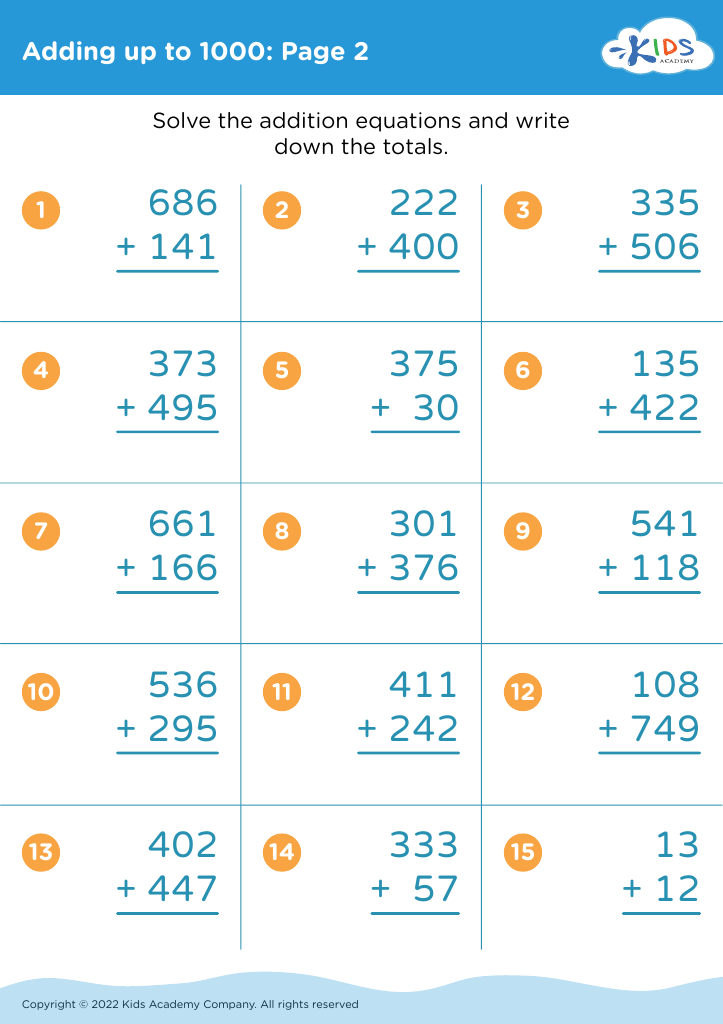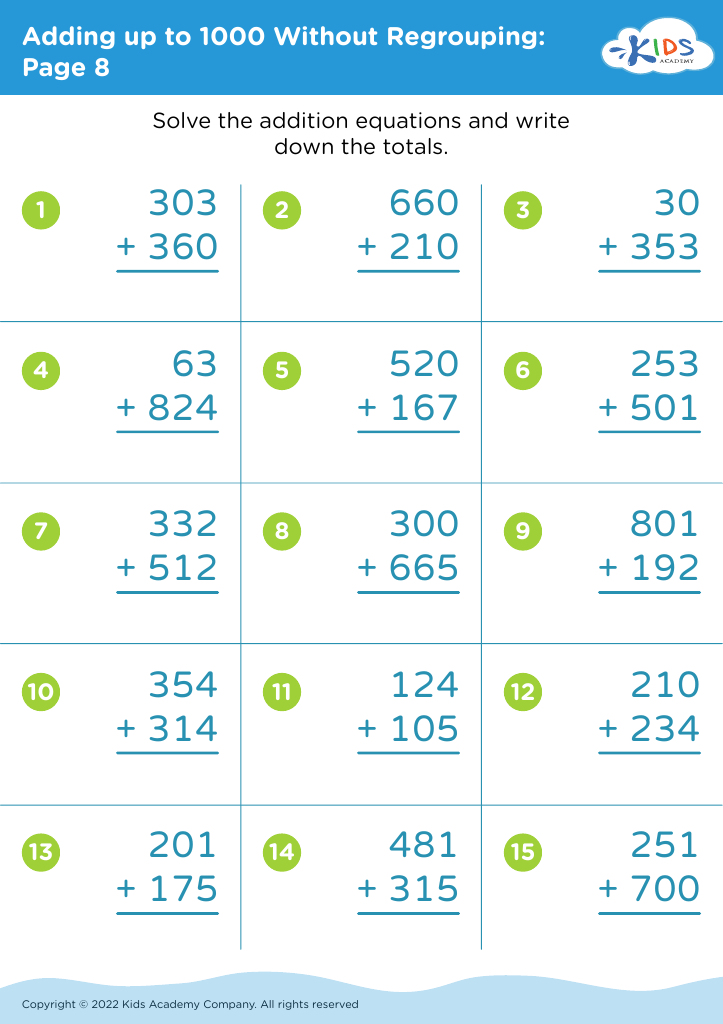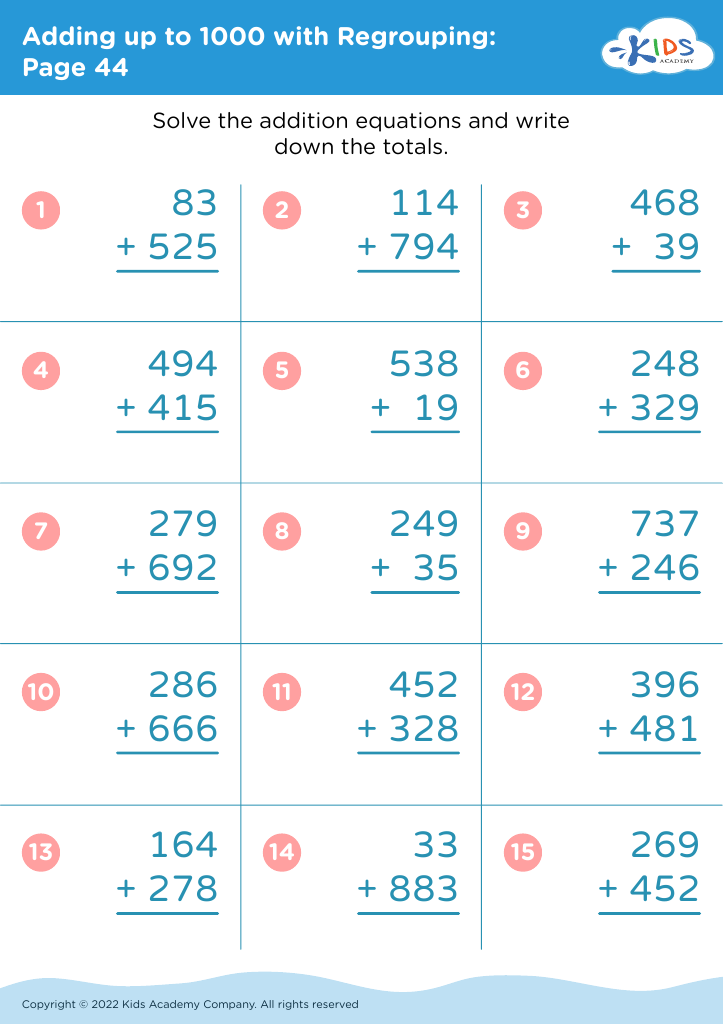Develop critical thinking Adding up to 1000 Worksheets for Ages 6-7
3 filtered results
-
From - To
Our "Develop Critical Thinking: Adding up to 1000 Worksheets for Ages 6-7" are expertly designed to support young learners in enhancing their mathematical and critical thinking skills. These engaging worksheets focus on adding up to 1000, providing practical problems that challenge children's understanding and stimulate their reasoning abilities. Through a variety of creative exercises, children learn to solve problems with confidence, develop logical thinking, and strengthen their mental math capabilities. Perfect for classroom and home use, these worksheets are an invaluable resource for fostering a strong math foundation in early learners. Download now and watch your child thrive!
Fostering critical thinking in children aged 6-7 is crucial because it lays the foundation for lifelong learning and problem-solving skills. At this formative age, students who engage in activities like adding up to 1000 not only enhance their mathematical abilities but also nurture critical thinking. The process of solving complex addition problems encourages children to recognize patterns, make predictions, and develop logical reasoning. These skills are transferrable beyond mathematics, helping children in reading comprehension, science, and daily decision-making.
Moreover, developing critical thinking at a young age empowers students to become independent learners, boosting their confidence and willingness to tackle new challenges. It promotes curiosity and equips them to approach problems methodically, considering multiple solutions and outcomes. Preparing children with these essential skills ingrains a mindset that values evidence and rationale, a foundation for advanced academic achievement and real-world problem-solving.
Educators and parents who prioritize these aspects not only support the immediate academic success of their children but also invest in their ability to think critically and creatively. This combination is instrumental in navigating an increasingly complex world. Encouraging young minds to think deeply and logically ensures they grow into adaptable, engaged, and thoughtful adults.














